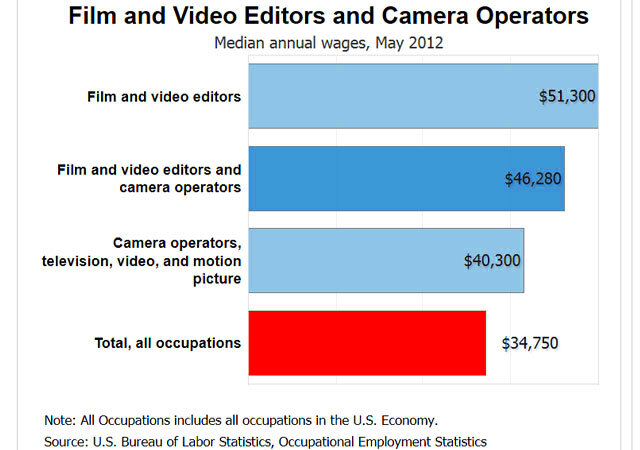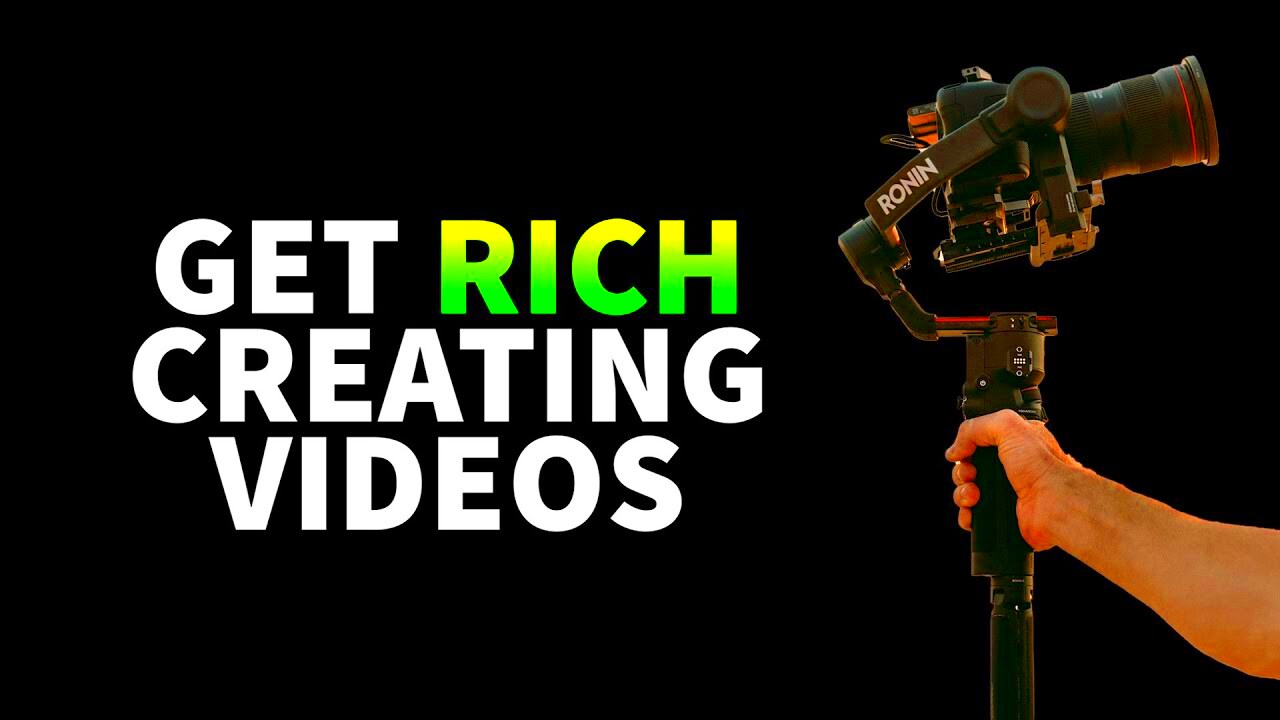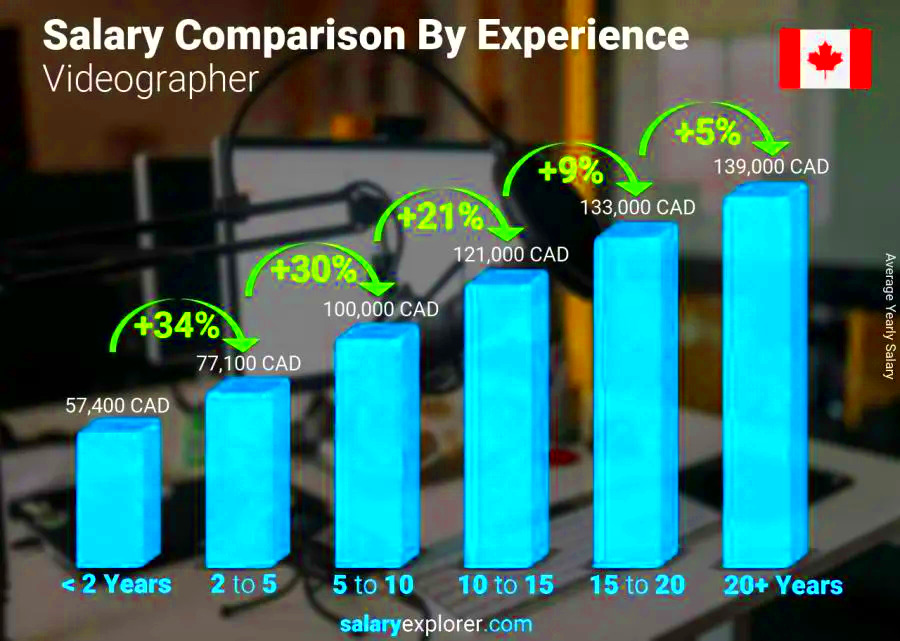Freelance videography is an exciting field that combines creativity with technical skills. Videographers capture moments through their lenses, telling stories that engage audiences. With the rise of online content, businesses and individuals increasingly seek skilled videographers to create promotional videos, documentaries, events, and more. This post explores what you need to know about the videography market and how various factors impact your earnings as a freelance videographer.
Understanding the Videography Market

The videography market has grown significantly in recent years. More companies understand the importance of video content in marketing, education, and entertainment. This section highlights key aspects of the market:
- Demand for Video Content: From social media to corporate training, video content is everywhere. Brands need videos to engage their audience and communicate effectively.
- Diverse Opportunities: Freelance videographers can work in various areas such as weddings, corporate events, commercials, and documentaries. Each niche has its own unique requirements and client expectations.
- Technological Advancements: With improvements in camera technology and editing software, it's easier than ever to create high-quality videos. This means more competition, but also more opportunities for those who are skilled.
Understanding these aspects will help you navigate the market and position yourself effectively as a freelance videographer.
Also Read This: How to Become a Seller on Fiverr: A Step-by-Step Guide
Factors Influencing Earnings for Freelance Videographers

Several factors can affect how much you earn as a freelance videographer. Here are the key elements to consider:
- Experience Level: More experienced videographers typically command higher rates. As you build your portfolio, you can gradually increase your fees.
- Niche Specialization: Focusing on a specific niche, such as corporate videos or event videography, can impact your earnings. Specialized skills often lead to higher-paying projects.
- Location: Where you live plays a role in your earnings. Urban areas with a high demand for video services may offer better pay compared to rural regions.
- Quality of Work: The quality of your videos significantly affects your reputation and client referrals. Investing in good equipment and continuous learning can enhance your skills.
- Client Relationships: Building strong relationships with clients can lead to repeat business and referrals, which positively impacts your income.
By understanding these factors, you can make informed decisions to boost your earnings in the competitive world of freelance videography.
Also Read This: Why Can’t I Publish My Gig on Fiverr?
Typical Earnings Range for Freelance Videographers

When considering a career in freelance videography, it's essential to understand the typical earnings you can expect. Freelance videographers' income varies widely based on experience, niche, and location. Here's a general breakdown:
- Entry-Level Videographers: Those just starting in the industry can expect to earn between $20,000 and $40,000 annually. Many entry-level videographers charge hourly rates ranging from $25 to $50.
- Mid-Level Videographers: With a few years of experience and a solid portfolio, you can earn between $40,000 and $70,000 per year. Rates for mid-level freelancers often fall between $50 and $100 per hour.
- Experienced Videographers: Established professionals with a strong portfolio and clientele can earn $70,000 or more annually. Hourly rates for experienced videographers can range from $100 to $200 or more, especially for specialized projects.
Keep in mind that these figures can fluctuate based on demand and the specific services offered. For example, videographers who focus on high-demand areas like weddings or corporate events may see higher earnings. Overall, understanding the earnings landscape helps you set realistic financial goals in your freelance videography journey.
Also Read This: Is Fiverr Credible? Exploring the Trustworthiness of the Freelance Marketplace
Ways to Increase Earnings as a Freelance Videographer
If you're looking to boost your income as a freelance videographer, several strategies can help you maximize your earnings. Here are some effective ways to do just that:
- Expand Your Skill Set: Learning new techniques or software can set you apart from competitors. Consider taking online courses or attending workshops to improve your skills.
- Diversify Your Services: Offering a range of services can attract more clients. Consider adding video editing, animation, or drone footage to your offerings.
- Build a Strong Online Presence: Create a professional website and active social media profiles to showcase your work. Regularly posting your projects can attract new clients.
- Network with Other Professionals: Connecting with other creatives can lead to referrals and collaborations. Attend industry events and join online forums to expand your network.
- Offer Packages and Discounts: Create attractive service packages or discounts for repeat clients. This encourages more bookings and fosters long-term relationships.
By implementing these strategies, you can increase your visibility in the market and attract higher-paying projects.
Also Read This: Top Fiverr Sellers for Educational Services in 2024
Building a Strong Portfolio to Attract Clients
Your portfolio is your calling card as a freelance videographer. It showcases your style, skills, and the range of services you offer. Here are some tips for building an impressive portfolio:
- Showcase Your Best Work: Include only your best projects that highlight your skills and creativity. Quality over quantity is key.
- Diverse Project Types: Display a variety of work, from corporate videos to events and personal projects. This demonstrates your versatility to potential clients.
- Use High-Quality Visuals: Ensure that your videos are well-edited and presented. High production value attracts more attention.
- Include Client Testimonials: Positive feedback from past clients can enhance your credibility. Ask for testimonials and include them alongside your work.
- Keep It Updated: Regularly update your portfolio with new projects. This shows that you are active in the industry and keeps your work fresh in the minds of potential clients.
A strong portfolio is essential for attracting clients and securing higher-paying gigs. Take the time to curate your work and present it professionally.
Also Read This: How Much Can You Make on Fiverr? Understanding Earnings Potential
Networking and Marketing Strategies for Videographers
Networking and effective marketing are vital for freelancers looking to grow their business. Connecting with the right people can open doors to new opportunities, while smart marketing helps you stand out in a crowded market. Here are some key strategies to consider:
- Attend Industry Events: Participate in conferences, workshops, and trade shows. These events provide a chance to meet potential clients and other professionals in the field.
- Join Online Communities: Engage in forums and social media groups focused on videography. Share your work, ask for feedback, and connect with peers.
- Collaborate with Other Creatives: Partnering with photographers, designers, or content creators can lead to exciting projects and mutual referrals.
- Create a Strong Social Media Presence: Use platforms like Instagram, YouTube, and LinkedIn to showcase your work. Regularly post behind-the-scenes content and highlight completed projects.
- Utilize Local SEO: Optimize your website for local search terms. This helps local clients find your services when searching online.
- Develop a Referral Program: Encourage satisfied clients to refer you to others. Offer discounts or incentives for successful referrals to boost your client base.
By combining these networking and marketing strategies, you can create a strong presence in the videography community and attract more clients.
Also Read This: How to Get Your First Client on Fiverr
Frequently Asked Questions
As you explore the world of freelance videography, you may have some common questions. Here are a few frequently asked questions that can help clarify some important aspects:
- What equipment do I need to get started? While high-quality cameras and lenses are important, you can start with what you have. A good smartphone camera can work initially. As you grow, consider investing in better gear.
- How can I find clients? Networking, social media, and word-of-mouth referrals are great ways to find clients. Consider joining freelance platforms to connect with potential clients.
- How much should I charge for my services? Research industry rates based on your experience and location. Start at competitive rates and gradually increase them as your skills and portfolio grow.
- Do I need a business license? This depends on your location. Check local regulations to determine if you need to register your business or obtain a license.
- How do I handle contracts and payments? Always use contracts to outline the scope of work and payment terms. Consider using invoicing software to manage payments efficiently.
These FAQs can provide valuable insights as you navigate your journey as a freelance videographer.
Conclusion on Earnings for Freelance Videographers
In conclusion, the earnings of freelance videographers can vary widely based on several factors such as experience, niche, and market demand. While entry-level videographers might start with modest incomes, there are plenty of opportunities to increase earnings over time. By expanding your skills, building a strong portfolio, and effectively marketing yourself, you can position yourself for success in this dynamic field.
As you embark on your freelance videography journey, remember that persistence and dedication are key. Keep learning, networking, and honing your craft, and you'll find that the rewards can be both fulfilling and financially rewarding. Embrace the challenges and enjoy the creative process, and you may discover that a career in videography is not just a job but a passion that pays.




